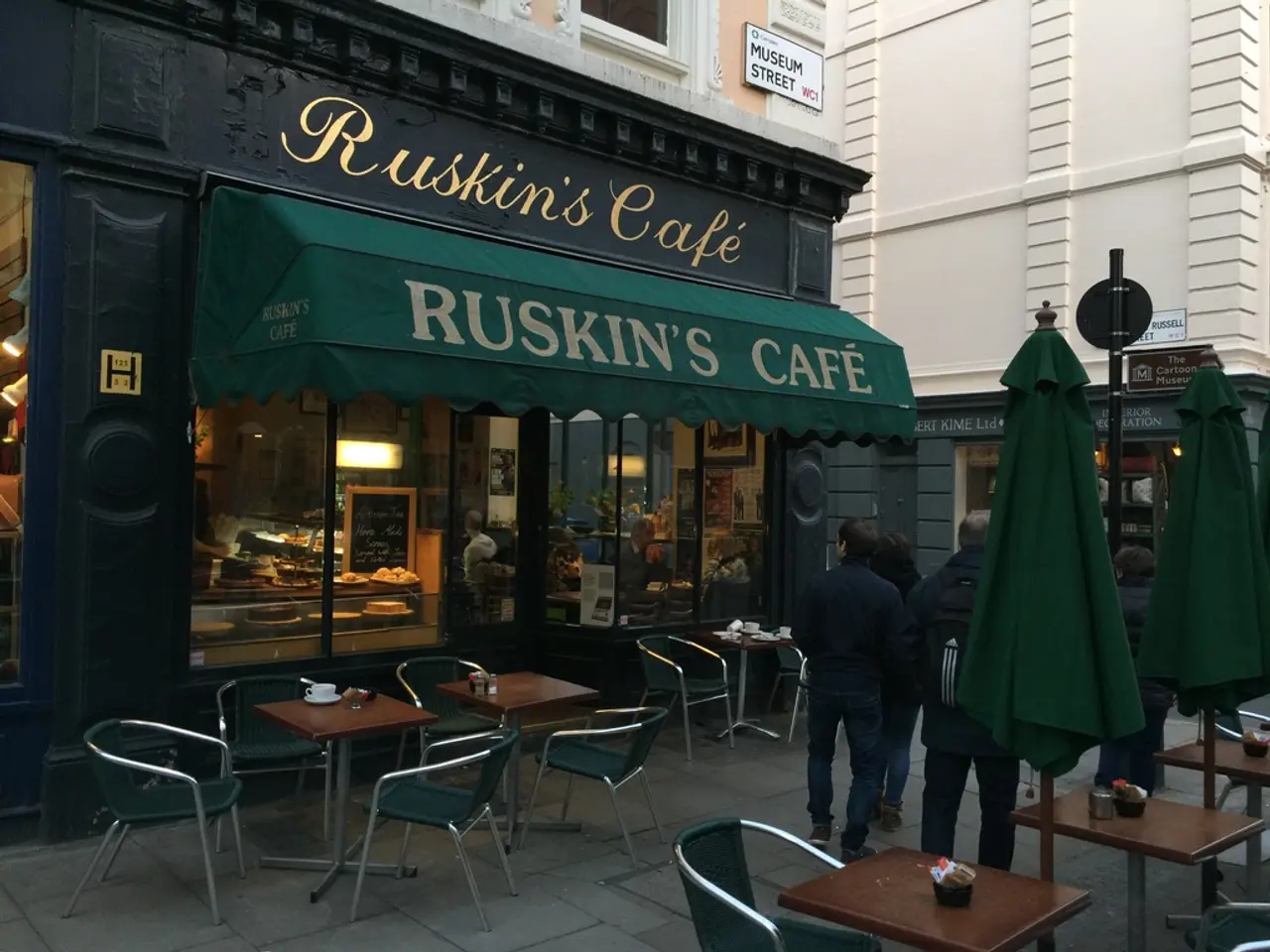Russians continue to prioritize savings, according to VTB analysts' observations
In the heart of July 2025, the Russian retail savings market witnessed a significant surge, with a whopping 793 billion rubles added to the total deposits in banks across the country. This trend, according to Alexei Okhorzin, Senior Vice President and Head of the Retail Business Products Department at VTB, represents a steady growth in the savings market.
VTB, a leading bank in Russia, has seen its retail deposits reach an impressive 11.2 trillion rubles since the beginning of the year, with over 10.6 trillion of these deposits being in the national currency. This growth, it seems, is not a fleeting phenomenon, but a reflection of a broader trend in the Russian savings market.
The main driver of this growth is the increase in savings in the national currency, which accounts for almost 90% of the total market growth in rubles. This shift towards ruble deposits can be attributed to a combination of factors, including lower inflation, tighter but gradually easing monetary policy, and improved real incomes.
The Bank of Russia's recent significant cut in the key interest rate from 21% down to 18% in July 2025 is a clear indication of this easing monetary policy. This move, coupled with a falling inflation rate, has increased consumer confidence and purchasing power, encouraging more households to save in rubles rather than seeking alternatives.
The declining inflation and stable economic growth, with GDP growth remaining around 4.3% despite sanctions and fiscal tightening, have further bolstered this trend. Domestic demand growth is slowing but balanced, supporting moderate lending expansion and a more stable economic environment, making retail deposits in ruble-denominated accounts safer and more attractive.
Russians' consumer behavior shows a focus on essentials like food, housing, and healthcare, but also increasing interest in wellness and ethical products. This suggests that there is more disposable income available for saving rather than immediate spending.
Banks like VTB are benefiting from these trends, as retail ruble deposits are seen as a secure place amid tighter but easing monetary conditions, reduced inflation expectations, and the economic government support over recent years.
In summary, the combination of a steady decline in inflation, easing key rates, and improving real disposable incomes is driving expanded retail ruble savings deposits in banks such as VTB. This reflects a cautious optimism in the Russian retail financial market by mid-2025.
[1] Central Bank of Russia (2025). Monetary Policy Report. [Online]. Available: https://www.cbr.ru/eng/statistics/monetary_policy/
[2] Russian Federal Statistics Service (2025). Quarterly National Accounts. [Online]. Available: https://rosstat.gov.ru/
[3] World Bank (2025). Russia Economic Update. [Online]. Available: https://www.worldbank.org/en/country/russia/publication/russia-economic-update
[4] Russian Consumer Barometer (2025). Q2 2025 Report. [Online]. Available: https://www.kantar.com/global/ru/insights/reports/russian-consumer-barometer-q2-2025-report
[5] OECD (2025). Economic Outlook for Russia. [Online]. Available: https://read.oecd-ilibrary.org/economics/economic-outlook-for-russia_9789264290561-en#page115
- The increased savings in the national currency, accounting for almost 90% of the total market growth in rubles, is contributing significantly to the growth of personal-finance deposits in Russian banks, such as VTB.
- The expanding retail ruble savings deposits in banks like VTB can be attributed to a combination of factors, including lower inflation, a reduction in key interest rates, and improved personal-finance situations, as indicated by the declining inflation and stable economic growth in Russia.




